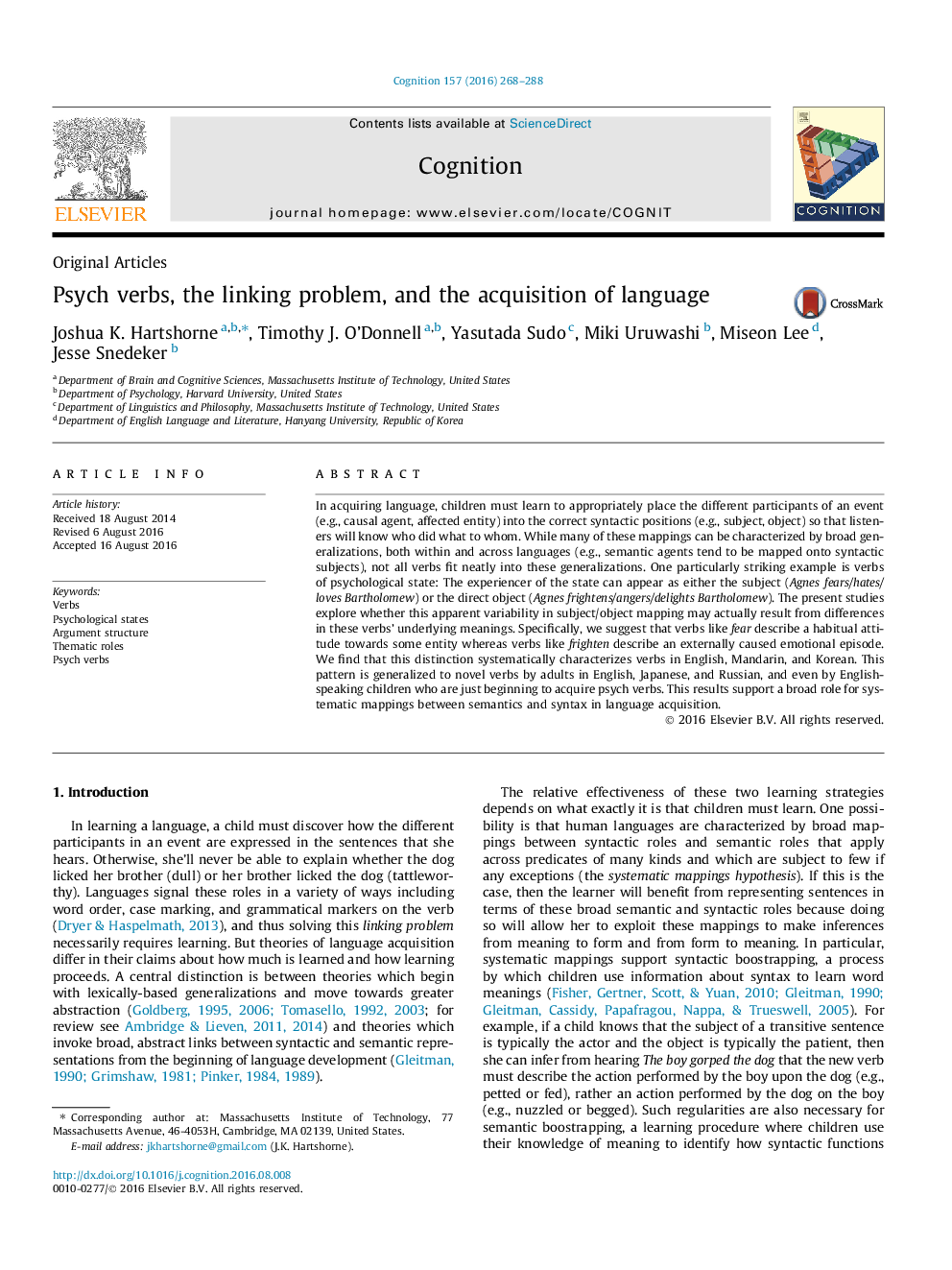| Article ID | Journal | Published Year | Pages | File Type |
|---|---|---|---|---|
| 7285793 | Cognition | 2016 | 21 Pages |
Abstract
In acquiring language, children must learn to appropriately place the different participants of an event (e.g., causal agent, affected entity) into the correct syntactic positions (e.g., subject, object) so that listeners will know who did what to whom. While many of these mappings can be characterized by broad generalizations, both within and across languages (e.g., semantic agents tend to be mapped onto syntactic subjects), not all verbs fit neatly into these generalizations. One particularly striking example is verbs of psychological state: The experiencer of the state can appear as either the subject (Agnes fears/hates/loves Bartholomew) or the direct object (Agnes frightens/angers/delights Bartholomew). The present studies explore whether this apparent variability in subject/object mapping may actually result from differences in these verbs' underlying meanings. Specifically, we suggest that verbs like fear describe a habitual attitude towards some entity whereas verbs like frighten describe an externally caused emotional episode. We find that this distinction systematically characterizes verbs in English, Mandarin, and Korean. This pattern is generalized to novel verbs by adults in English, Japanese, and Russian, and even by English-speaking children who are just beginning to acquire psych verbs. This results support a broad role for systematic mappings between semantics and syntax in language acquisition.
Related Topics
Life Sciences
Neuroscience
Cognitive Neuroscience
Authors
Joshua K. Hartshorne, Timothy J. O'Donnell, Yasutada Sudo, Miki Uruwashi, Miseon Lee, Jesse Snedeker,
